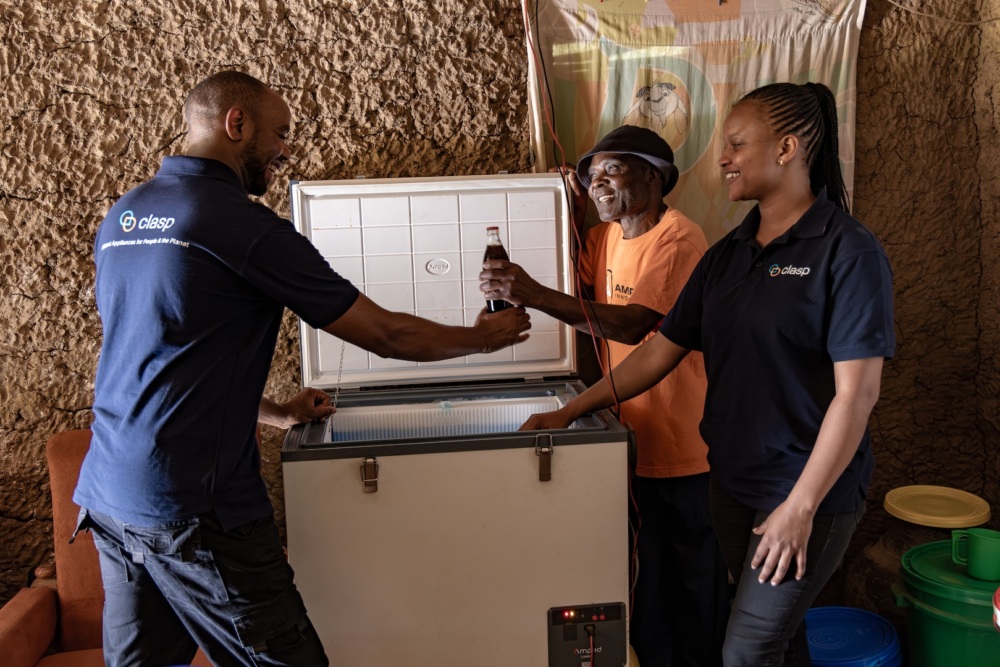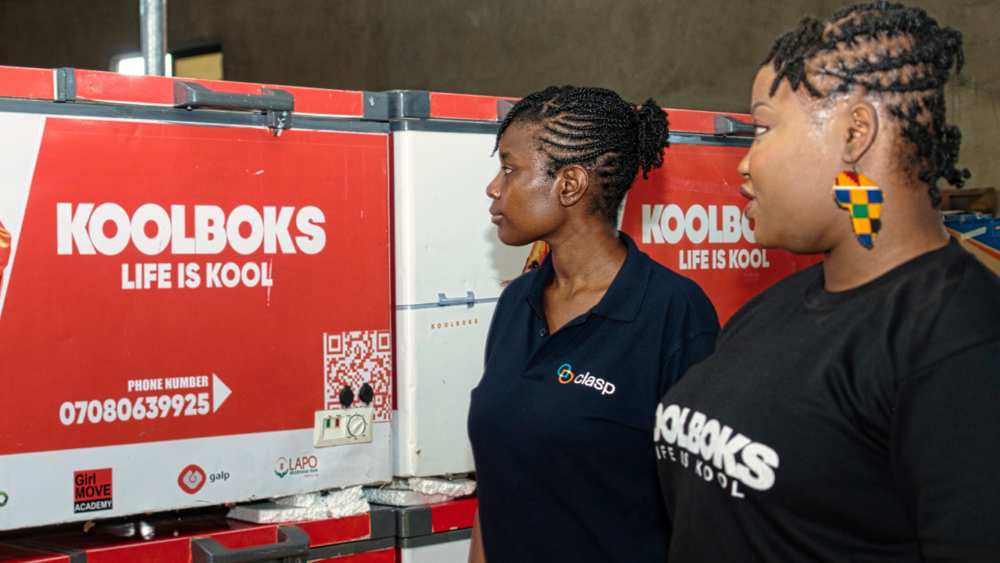CLASP highlights benefits of energy efficiency for on & off-grid at 2019 eceee Summer Study
Recently, CLASP joined our partners in the energy efficiency community at the European Council for an Energy Efficient Economy (eceee) 2019 Summer Study on energy efficiency in Presqu’ile de Giens, France. The annual eceee Summer Study provides a platform for energy efficiency professionals to share their knowledge and insights from the field and promote best practices in energy efficiency policy. This year, nine CLASP team members from Kenya, the US, and Europe shared six new peer-reviewed papers and hosted an exciting solutions workshop: Should Europe care about appliance efficiency in Africa? Can Europe get inspiration from Africa on its path towards sufficiency? Nils Borg, the Executive Director of eceee, featured the workshop in a blog article.
 Nyamolo Abagi sharing insights on off-grid appliance efficiency
Nyamolo Abagi sharing insights on off-grid appliance efficiency
The 6 CLASP papers touched on major aspects of appliance energy efficiency policy design, implementation, and study globally. We provide a brief summary of each paper below.
Catalysing technology innovation in the off-grid market through appropriate product performance testing in the laboratory and field
Nyamolo Abagi, Makena Ireri, Elisa Lai
Refrigerators hold unique potential to unlock economic and social progress for the billions of people living without reliable access to electricity globally. Refrigerators enable improved food security, increased access to markets, and decreased health risks relating to food consumption. However, refrigerators intended for use by off-grid consumers must be considerably cheaper and run on far less energy than current industry standard products. This paper presents an analysis of the performance of off-grid refrigerators based on data generated via laboratory and field testing processes. Read the paper
Assessing testing capacity in ECOWAS and ASEAN regions to support S&L programs for cooling appliances
Lina Kelpsaite, Nicole Kearney, Rebecca Schloemann
Increasingly, policymakers are prioritizing building national or government-owned testing laboratories in support of new appliance energy efficiency programs. However, this requires significant upfront investment and continuous funding to operate the facility. Alternatives to building new test labs may be more cost-effective. This paper highlights common testing trends in the Economic Community of West African States (ECOWAS) and the Association of Southeast Asian Nations (ASEAN), current regional capacity to test cooling products for energy efficiency, opportunities to enhance existing regional capacity, and alternative cost-effective solutions to extensive testing for market surveillance. Read the paper
 Lina Kelpsaite presenting on the importance of having a strong business case for test labs
Lina Kelpsaite presenting on the importance of having a strong business case for test labs
Development and evaluation of a novel test method for digital signage displays
Michael Scholand, Marie Baton, Robert Harrison (RJH Associates), Steve Fernandes (Intertek)
Digital signage displays, commonly known as Public Information Displays (PID), are a rapidly expanding energy-using product across Europe and around the world. The European Commission’s draft electronic displays regulation published in October 2018 proposes to establish an A to G energy label for these displays to differentiate between products on the market. This new energy label needs a test method designed specifically for PID so the scale is indicative of product performance. In this paper, the design and characteristics of a new test method for PID are presented and applied to a representative cross-section of products. Read the paper
 Michael Scholand discussing EU energy efficiency policy for PIDs
Michael Scholand discussing EU energy efficiency policy for PIDs
Recognizing and rewarding higher efficiency: case studies in moving to a single test metric for fixed and variable speed air conditioners
Colin Taylor, Ana Maria Carreño
Increasing the market share of inverter air conditioners (ACs) is a key step towards improving the efficiency of residential cooling; however, the efficiency benefits from inverters are often not captured in energy efficiency standards and labeling programs because certain metrics only reflect performance at full load. Additionally, some economies use multiple metrics to regulate energy efficiency for fixed speed and inverter air conditioners, thereby preventing fair, technology-neutral comparisons between all types of ACs. This paper examines the transition to a single test metric for room ACs and the resulting market transformation in India and Southeast Asia. Read the paper
Boosting African regional markets of highly efficient appliances through effective energy efficiency and trade policy
Ana Maria Carreño, Colin Taylor
Policymakers in Africa are evaluating opportunities to improve the availability of affordable high efficiency products on their markets by implementing energy efficiency policy. In other markets, tariff reductions on intra-regional trade along with regional standards harmonization have led to increased regional manufacturing and trade. What if coupling proven energy efficiency policy tools with effective trade policy could reshape the regional market of highly efficient appliances in Africa? This paper evaluates the opportunity to boost the effects of regionally harmonized standards within the African Continental Free Trade Area, by improving efficiency of appliances while enhancing intra-regional trade. Read the paper
CLASP policy database – an appliance energy efficiency tool for collaboration and innovation
Amanda McCrum, Nicole Kearney, Ana Maria Carreño, Rebecca Schloemann
CLASP created our Policy Database over 15 years ago to provide a comprehensive index of every energy efficiency policy covering appliances and equipment worldwide. This tool allows practitioners to both examine individual policies closely and consider them in aggregate to ascertain trends. As appliance energy efficiency programs have evolved and expanded, so too has the CLASP Policy Database. This paper highlights the functionality, use cases, and potential outputs of the Policy Database, demonstrating the wealth of policies worldwide, where there are opportunities to do more, and regional collaboration opportunities to align policies and ultimately reduce energy use through the promotion of energy efficient appliances. Read the paper
 Amanda McCrum discussing the CLASP Policy Database
Amanda McCrum discussing the CLASP Policy Database
These papers were originally published in the eceee 2019 Summer Study proceedings: Is efficient sufficient?
CLASP endeavors to contribute our expertise to the international conversation around on- and off-grid appliance energy efficiency and the important role energy efficiency policy plays in mitigating catastrophic climate change. Visit our publication library for access to more CLASP research and analyses.









